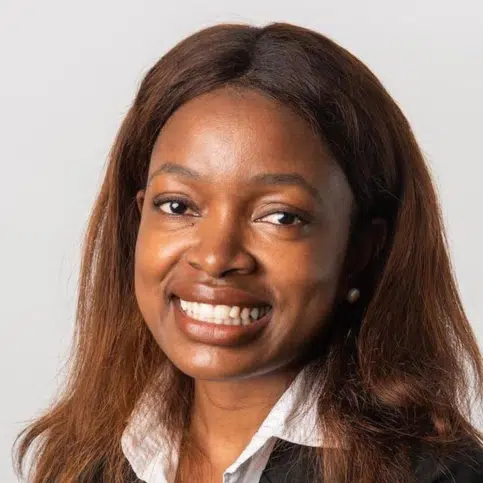Researcher Spotlight: Mwanasha Merrill, MD
DANA-FARBER CANCER INSTITUTE

Diagnosis of lymphoma is currently based on the use of biopsies and imaging scans to detect cancer cells and tumors. Challenges exist with the use of these techniques, though – biopsies can be invasive and cause discomfort, imaging tests are expensive, and both carry a risk of procedural complications. Additionally, the reliability of these tests may be questionable in certain circumstances, as many patients determined to be in complete remission by imaging later relapse. “Safer and more sensitive diagnostic approaches for detecting lymphoma are therefore urgently needed,” says Dr. Merrill. “We propose to fill this diagnostic void with an innovative new ‘liquid biopsy’ test optimized for T-cell lymphomas.” As Dr. Merrill explains, this test is used to detect circulating tumor DNA in the blood, which she hopes will help detect T-cell lymphomas more accurately than conventional imaging scans.
Dr. Merrill earned her medical degree from Tufts University School of Medicine in Boston, Massachusetts. She is currently a hematology/oncology fellow at Dana-Farber Cancer Institute, where she is excited about building a career in lymphoma research at the intersection of cutting-edge molecular diagnostics and experimental therapeutics. “I am fortunate to work in an environment that fosters clinical research in lymphoma,” she says. “I know the importance of advancing our knowledge in this field, improving detection and treatment options. I hope that this will ultimately improve the quality of life for people affected by lymphoma.”
Dr. Merrill hopes to leverage her experiences as a Lymphoma Scientific Research Mentoring Program (LSRMP) fellow to establish herself as a clinical research expert in the treatment of lymphoma, with a focus on developing new diagnostic assays that can help serve resource-poor environments. She is continually motivated by the patients she sees in the clinic, who inspire her to keep working to develop better ways to diagnose and treat lymphoma. “Witnessing the challenges these individuals face and their courage in fighting the disease is a powerful motivator to improve treatments,” she says.


